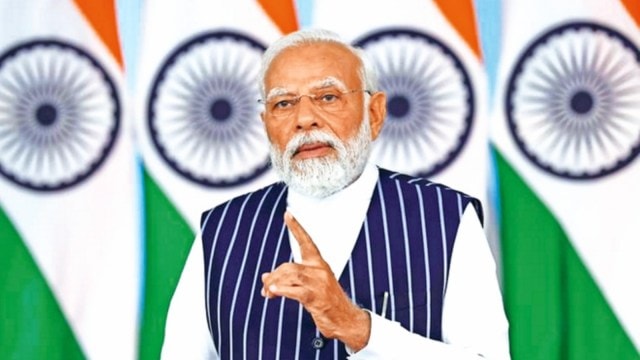
Prime Minister Narendra Modi’s speech in Kutch last month after Operation Sindoor, slamming Pakistan in no uncertain terms, was significantly different from the usual Indian template. History tells us that Indians never ever rub the noses of their enemies in the ground or seek to destroy them completely, even after defeating them roundly. That is simply not the Indian way. There has not been a single instance when India has wiped out an aggressive outsider, tried to get into his mind to understand the roots of aggression or, even taken pre-emptive action to protect itself from future attacks. Outsiders who settled here, became Indianised, in their turn, followed the Indian paradigm, focused on dealing with the enemy as if the greatest accolade comes from the audience clapping and not from rooting out the enemy. By and large, this paradigm has worked well for Indians till Islamist invaders turned Indiawards.
Despite knowing well of the Islamist destruction of west Asian and west Africa for over 200 years, Indians remained indifferent to the fact that a new kind of invader was standing at their door. Multiple invasions across the Indus were repelled with little effort to create either protective buffer zones or ring fences. The one occasion when the Islamists managed to defeat Prithviraj Chauhan, they promptly blinded him and eliminated the biggest obstacle to their control over India.
After hundreds of years of living in India, the Afghan sultans got Indianised enough to follow the Indian paradigm of being soft to invaders. Babur’s engagement at Panipat in 1526 wasn’t his first foray into India. He had nibbled out pieces on four previous occasions. He was repulsed each time. But neither the Sultan in Delhi nor his subordinates ever realised the gravity of the threat.
After ruling over India for 200 years, the Mughals repeated the pattern. They showed no curiosity about the Europeans who stood slavishly in their courts. The Mughals merely complained that the English did not bring them jewels. Mughal princes showed no curiosity about this new creature in their midst even though things like techniques of European-style painting were being picked up by artists in the royal karkhana.
Mulla Shah, a teacher of Aurangzeb, arrived at the royal court when Aurangzeb ascended the throne. After seeing him standing in the court for three months, an irritated Aurangzeb is said to have criticised his teacher for not providing suitable instruction about “the distinguishing features of every nation of the earth; its resources and strength; its mode of warfare, its manners, religion, form of government, and wherein its interests principally consist.”
Evidently Aurangzeb had a strong sense of grievance for not having information about Europeans. But he did little to remedy the situation. He did not create institutions through which such knowledge could be created or passed on to future generations.
Even today, after constant assertions by the leaders of Pakistan, Indians choose to ignore their words of threats. It is no coincidence that many of the Pakistani weapons are named after Islamist invaders who destroyed India. That is the mental landscape in which the leaders of that country live. They see India as an enemy nation and look forward to repeating the deeds of Islamist heroes from the past.
It is in this context that Modi’s words in Kutch actually indicate a shift from the usual Indian position. At least, he is asking the people of Pakistan to force their leaders to change their thinking.
The writer is a historian based in New Chandigarh